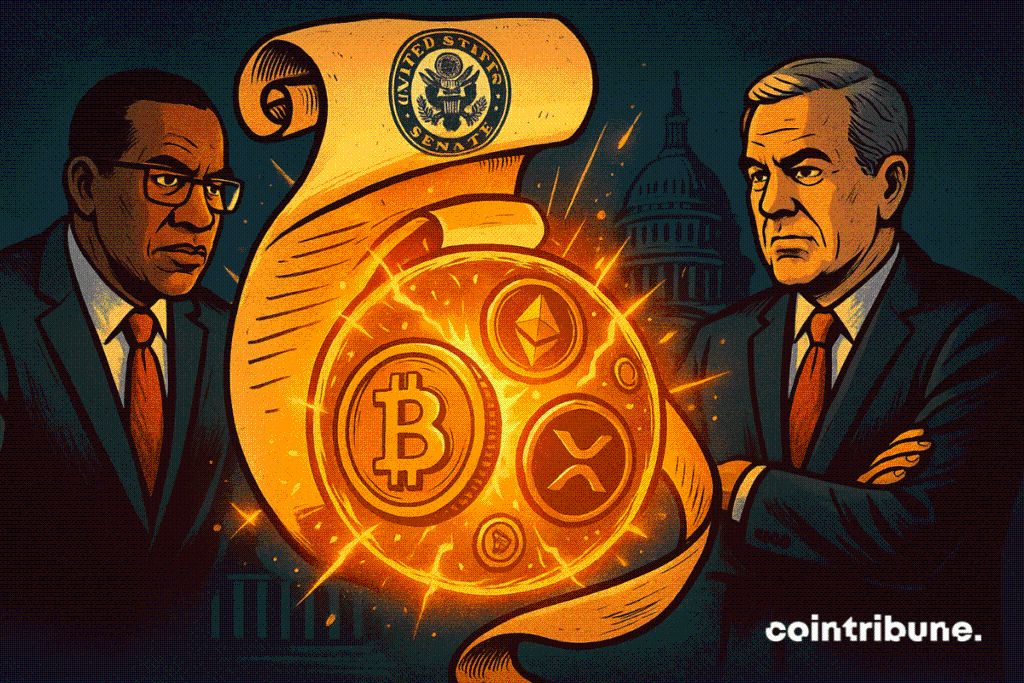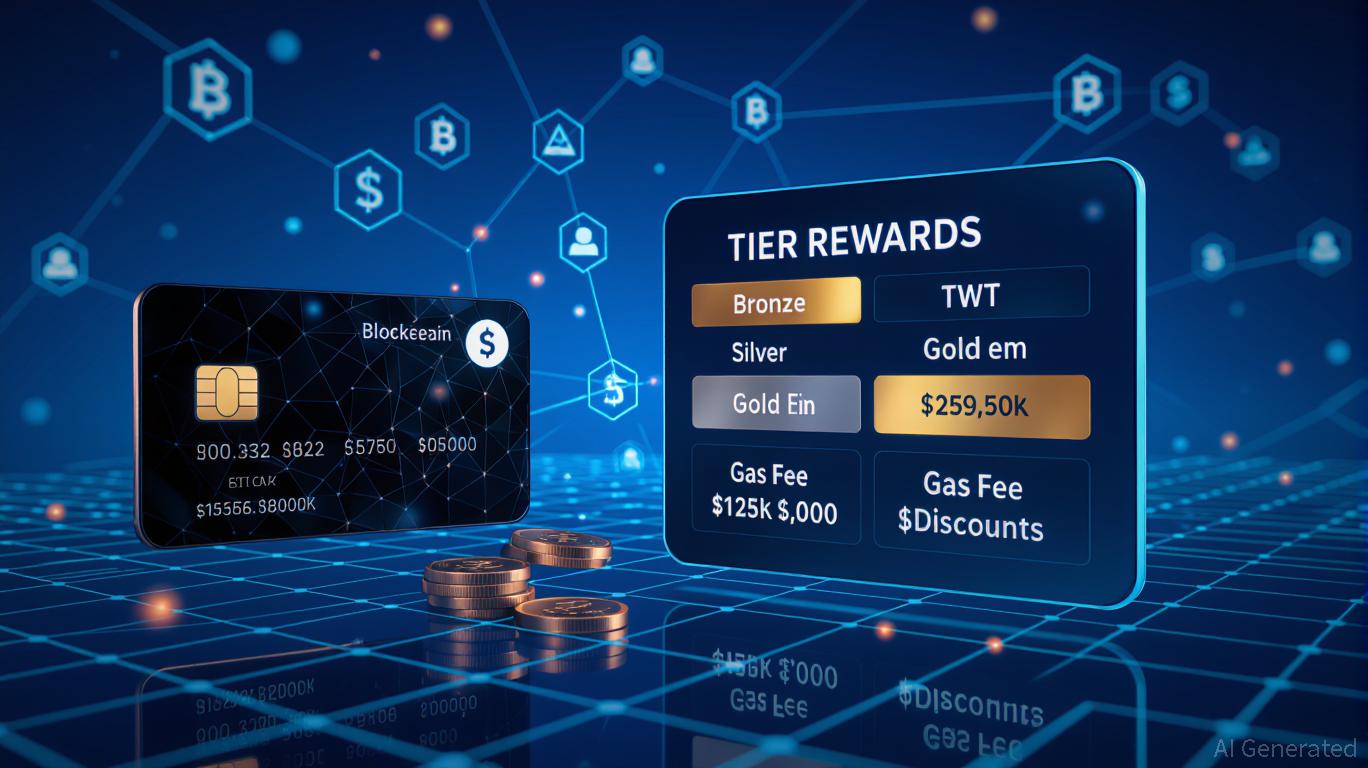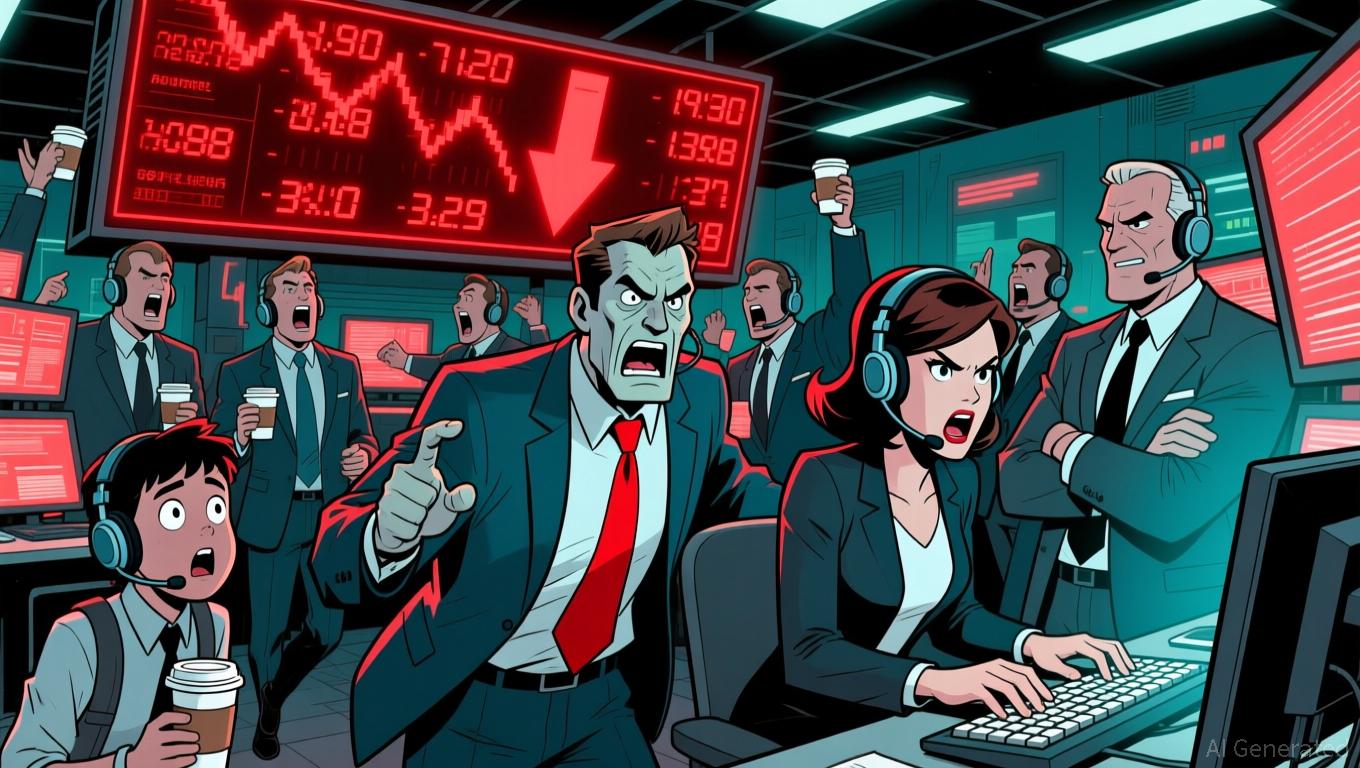Crypto Bill Sparks Debate Between Senate Committees
While the United States struggles to align on crypto regulation, the Senate breaks the deadlock. The Agriculture Committee has just unveiled an ambitious bill aimed at clarifying the roles of regulators, CFTC and SEC, and laying the foundations for a coherent legal framework. Led by Senators Boozman and Booker, the text also addresses key concepts such as DeFi, DAOs, and blockchain. This is a first step towards more readable regulation.

In brief
- The US Senate unveils a bill aimed at clarifying crypto market regulation.
- The text, led by Senators Boozman and Booker, assigns a central role to the CFTC to oversee the spot crypto market.
- Legal definitions are introduced for key concepts such as blockchain, DeFi, and decentralized autonomous organizations (DAO).
- Several sections of the bill are still under discussion, reflecting ongoing disagreements within Congress.
A framework for the CFTC, an attempt to bring order to regulatory chaos
The release of the preliminary bill by the Senate Agriculture Committee after many discussions with David Sacks represents a major milestone in the legal structuring of the US crypto market.
Concretely, this initiative aims to clarify the respective competencies of the CFTC and SEC, two agencies often in conflict in their interpretation of these assets. Republican Senator John Boozman states that “the CFTC is the agency responsible for overseeing the spot market of digital goods, and it is essential to establish clear rules for this emerging market while protecting consumers”.
His Democratic counterpart Cory Booker highlights that this bill “will give the CFTC new powers to regulate the crypto spot market, offer new protections to retail investors, and ensure the agency has the necessary resources to oversee this growing market”.
Here are the key elements that this bill aims to regulate :
- The “blockchain” is structurally defined to establish its legal boundaries ;
- Decentralized finance (DeFi) is mentioned as a distinct area requiring appropriate regulation ;
- Decentralized autonomous organizations (DAO) are identified as legally distinct entities ;
- The term “digital commodity” is clarified to distinguish assets overseen by the CFTC from securities under the SEC.
Several sections of the text are still bracketed, indicating unresolved disagreements and remaining negotiation margins. As it stands, this bill marks a structural turning point in the way Congress intends to address the crypto ecosystem, laying legal foundations capable of meeting the calls for regulatory clarity often expressed by industry players.
A still contested text
Despite this apparent consensus around the strengthened role of the CFTC, some provisions of the text are already subject to internal criticism. An excerpt of the proposal, still bracketed, mentions “the viewpoint of a minority,” a position supported by some Democratic senators, according to which the Agriculture Committee should not have jurisdiction over certain aspects of the bill, particularly those related to blockchain developers or blockchain service providers.
These lawmakers advocate for broader collaboration with the Senate Banking Committee, which oversees the SEC, and thus the enforcement of securities laws. This divergence reflects a power struggle between Senate committees over control of the crypto framework, at a time when regulating digital finance has become a major political issue.
This bill also resonates with other recent initiatives. The CLARITY Act, passed by the House of Representatives in July, already granted a central role to the CFTC. The version presented by the Banking Committee in July could merge with this new draft.
However, the exact terms of this merger remain unclear, and the legislative schedule uncertain. Some key elements, such as DeFi, NFTs, or stablecoins, remain undefined or absent from the text, limiting its immediate scope and potentially fueling future regulatory tensions.
While several sector players welcome this bill, like Ji Hun Kim (Crypto Council for Innovation) who sees it as a significant step toward an adapted framework for cryptos, or Mason Lynaugh (Stand With Crypto, Coinbase), for whom it is an important step toward a sensible regulatory framework, others point out the risks of inconsistencies if institutions fail to harmonize their approaches.
Ultimately, this proposal marks legislative progress, but above all the start of a complex political undertaking, where institutional balances and divergent interests will have to adjust to create a coherent regulation with the end of the shutdown , protective and sustainable for the crypto market in the United States.
Disclaimer: The content of this article solely reflects the author's opinion and does not represent the platform in any capacity. This article is not intended to serve as a reference for making investment decisions.
You may also like
Trust Wallet Token (TWT) Price Forecast: Ushering in a New Chapter for Decentralized Finance?
- Trust Wallet Token (TWT) surged to $1.6 in October 2025, doubling from June lows, driven by strategic integrations and institutional partnerships. - TWT's reimagined utility model, including Trust Premium loyalty rewards and Onramper fiat-onboarding, boosted real-world adoption in emerging markets. - Institutional interest grew via RWA tokenization (e.g., U.S. Treasury bonds) and ZKsync privacy integrations, while Q3 2025 data showed $330M market cap and $11M daily volume. - Analysts project $5.13 (2025)

HBAR's ETF Surge Contrasts with Institutional Sell-Off as Token Drops 2.1%
- HBAR fell 2.1% to $0.1837 as a 95% volume surge signaled institutional selling pressure, breaking key resistance near $0.1940. - Canary Capital's first U.S. HBAR ETF (HBR) launched October 28, 2025, aiming to boost institutional access despite recent price weakness. - Technical indicators show bearish structure with critical support at $0.1831, suggesting further downside risk if consolidation fails. - While Hedera's enterprise blockchain infrastructure remains stable, macroeconomic pressures and regulat

Buffett Prefers Entrusting His Wealth to Family Rather Than Directing Philanthropy After His Passing
- Warren Buffett accelerates $150B estate distribution via family foundations, allocating $500M annually to four charities. - Shifts from Giving Pledge model to direct family stewardship, donating 2.7M Berkshire shares worth $1.35B to children's foundations. - Retirement as Berkshire CEO in 2025 and admission of past philanthropy's "infeasibility" highlight pragmatic approach to wealth transfer. - Strategy reflects broader trend toward decentralized giving, challenging traditional pledge frameworks with 9/
Ethereum Updates: $36B DeFi Outflow Highlights Security and Governance Issues Threatening Ethereum
- DeFi's total value locked (TVL) fell $36B in weeks, with Ethereum losing 13% to $74.2B amid security breaches and waning institutional interest. - High-profile exploits like Balancer's $120M hack exposed DeFi vulnerabilities, while Ethereum's price languished near $3,600 with $2,600 support at risk. - Positive signals include Tron's Justin Sun staking $154M ETH and Lido DAO's $10M token buyback, reflecting growing staking demand and confidence. - Analysts predict Ethereum could break out in 2026 due to r

